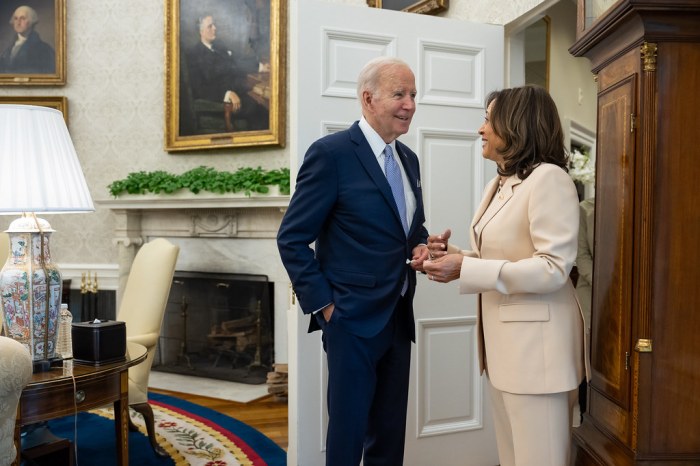Facing an uncertain January 7 State Senate vote, what are the options?
BY PAUL SCHINDLER
[Editor's note: Late in the afternoon on January 7, about 18 hours after this story was posted, the New Jersey State Senate voted 20-14 against the marriage equality bill, with one Republican joining 13 Democrats in support, and six Democrats siding with 14 Republicans in opposition.
Immediately after the vote, the state's LGBT lobby, Garden State Equality, and Lambda Legal, the gay rights litigation group that won the 2006 State Supreme Court order that same-sex couples be given all the rights and benefits of marriage, announced plans to go back to court to argue that civil unions do not meet that standard.
Kevin Cathcart, Lambda Legal's executive director, is quoted on the group's website saying, “The requirement to ensure equality for same-sex couples, established by the New Jersey Supreme Court in its decision in our marriage lawsuit in 2006, has not been met. There is enormous, heartbreaking evidence that civil unions are not equal to marriage, and we will be going back to the courts in New Jersey to fight for equality. Too many families are at risk. We cannot wait any longer.”]
On its face, the question of marriage equality in New Jersey appears to be a classic example of a political endgame.
As Gay City News goes to press on January 6, gay marriage legislation faces a critical State Senate vote, and one of the chief sponsors, Democrat Raymond Lesniak of Union, described the prospects as “very discouraging.” “It’s not that we don’t have the votes, it’s how we don’t have the votes,” he told Gay City News on the eve of the Senate action.
Several Republicans predisposed to support the measure, he said, are unwilling to do so because of primary threats from the right. “I understand that and accept that,” Lesniak said. “What I find most disturbing is the Democrats who have nothing to fear, but the Catholic Church has ginned up hundreds of letters and they have backed away.”
Citing “sermons in churches every Sunday,” he said, the Catholic influence “has been decisive,” particularly on Democrats who themselves are Catholic. Church leaders in New Jersey are “fixated” on blocking marriage equality, he argued.
Still, Lesniak said, “We’re pulling out the stops,” and the effort would continue until the votes are counted on the floor on January 7. “Miracles do happen,” he said. “So, don’t give up hope.”
Faced with likely defeat, some advocates might choose to avoid an immediate vote in order to build majority support in the Legislature. But the clock is working against marriage equality legislation in the Garden State.
And as the clock runs down, at least one prominent pro-equality legislator — Reed Gusciora of Trenton, an out gay Democrat who sponsors the bill in the Assembly — told Gay City News that he believes advocates should go back to court to argue that the state’s civil union law, enacted in 2006 in response to a State Supreme Court order that same-sex couples be given all the rights and benefits of marriage, with or without the name, does not live up to that mandate.
Governor Jon Corzine — the Democrat who early last year stated, “If we work together, 2009 will be the year when I will take this pen out of my pocket and we will sign the marriage equality bill” — leaves office on January 19, having failed both in carrying out that commitment and in saving his political hide.
Christopher Christie, the Republican former US attorney who bested Corzine on Election Day by a comfortable five percentage point margin, takes office that day, and has made clear his antipathy toward replacing the state’s three-year-old civil union law with full marriage equality. Just one month before his election, Christie said, “I do not support same-sex marriage. I’ve said that before, and I repeat it tonight… I would not sign a bill if it came to my desk.”
The State Senate, with a 23-17 Democratic majority, will take up the legislation at 2 p.m. on January 7; a vote is likely before evening. The Senate action is the effective bottleneck in moving toward passage. With a 48-32 Democratic majority in the Assembly, approval there, if the Senate adopts the measure, has good prospects. “The bill would pass the Assembly without a doubt,” Lesniak flatly predicted. Gusciora was more guarded, saying three votes still need to be found in his chamber.
Lesniak’s downbeat assessment of the chances in the Senate is borne out by several weeks of the Legislature’s two chambers playing political hot potato with the issue.
Gay marriage advocates — led by Steven Goldstein, chairman of Garden State Equality (GSE), the state’s LGBT lobby, Lesniak, and his Senate cosponsor, Loretta Weinberg of Teaneck — expressed confidence throughout 2009 that if Corzine won reelection, the Legislature would approve the bill in the current lame duck session. Since the civil union law was enacted, GSE has released a series of public opinion polls showing that majority support for marriage equality is growing in New Jersey.
In the immediate aftermath of the Corzine defeat, GSE remained insistently upbeat. “The difference between last night and tonight in New Jersey’s battle for marriage equality is that we are one day closer to winning marriage equality in the current legislative session,” Goldstein said in a written statement the evening that Corzine conceded. He termed Corzine, Weinberg, who had been Corzine’s running mate, Senate President Richard Codey, and Assembly Speaker Joseph Roberts the “all-star team on our side in these last months of the governor’s term.”
The all-star team’s ability to deliver, however, was soon called into question. Democrat Stephen Sweeney of West Deptford, a Philadelphia suburb, who will become the new Senate president when the Legislature reconvenes after Christie takes office, stated his opposition to bringing up the marriage bill in the lame duck session.
The December 7 hearing on the bill by the Senate Judiciary Committee was an ostensible victory, with a 7-6 vote in favor of reporting the measure out to the floor for full Senate action. Testimony by Julian Bond, the longtime civil rights leader who chairs the NAACP, was a high point in the seven-hour proceedings. GSE and other advocates were effective in introducing the unanimous findings of the Civil Union Commission, established by the Legislature to monitor the 2006 legislation, that it was not delivering true equality for same-sex couples and that the law should be changed “expeditiously because any delay in marriage equality will harm all the people of New Jersey.”
In fact, the Judiciary vote, though favorable, pointed up further problems with the marriage equality drive. Two Democrats on the committee — chair Paul Sarlo of Bergen County and vice chair John Girgenti of Passaic County — joined four Republicans in opposing the bill. The one compensating factor was that Republican Bill Baroni of Mercer County in central Jersey voted yes.
With the bill clearing the Judiciary Committee, the full Senate was due to take it up on December 10; had advocates been confident of favorable action, they surely would have moved for the vote and shifted efforts to the Assembly. Instead, Codey announced that the Senate was putting off consideration of the legislation until after the Assembly acted.
Pivoting instead to the Assembly offered some hope. Judiciary Committee consideration there afforded another high profile forum in which to highlight the civil union law’s failings and to address concerns that marriage equality would somehow infringe on religious freedom. With a favorable vote out of the Assembly, there was at least a shot that the Senate’s political dynamics would shift.
Before the Assembly had the chance to consider the bill, however, a more decisive blow was dealt to the marriage equality drive in the Senate. In a December 19 statement, five Republican senators — all of them moderates and key targets of the advocates — said that they would vote no, and predicted the effort would fall short. Significantly, like some of the Judiciary Committee members who voted no, the bloc of five acknowledged shortcomings in the civil union law, but said the appropriate remedy was strengthening its provisions and enforcement.
Two weeks later, on New Year’s Eve, the Assembly dodged the issue, with Speaker Joseph Roberts of Brooklawn, near Philadelphia, who has been a staunch marriage equality supporter, saying his chamber would act only after the Senate voted. Observers noted that Roberts was unwilling to ask his members to take a tough stand if the measure could not also pass the Senate.
On January 5, Codey, the Senate president, put a stop to the buck-passing, saying, “I think the people of this state deserve the right to a formal debate on the Senate floor.” Just hours later, Roberts issued a statement reiterating his support for marriage equality and pledging, “If the Senate approves it, I will take the extraordinary step of bringing the bill directly to the Assembly floor for a vote during our Monday voting session.”
So, the legislative game has come down to January 7. Ever since the November election, GSE has voiced a consistent can-do attitude, but Goldstein was unavailable for comment at press time. Lesniak pledged an unwavering commitment to soldier on to the end, even as he lamented the fact that the Catholic Church had merely paid “lip service” to his efforts to abolish the death penalty and provide some financial support for parochial schools — two issues in line with Church policy — while waging a full court press to defeat marriage equality.
Should Lesniak’s “miracle” happen, marriage equality could well become law in New Jersey next week.
But if not, what’s next?
Christie’s campaign statements would seem to preclude enacting a gay marriage law over the next four years, even if advocates were able to build greater support in the Senate down the line.
New Jersey does have one advantage that New York, where the State Senate last month rejected the marriage bill passed three times by the Assembly, does not enjoy — the State Supreme court ruling mandating equal treatment for same-sex couples. The greatest accomplishment that GSE and other advocates have achieved is in assembling a public record demonstrating that the civil union law has not proved equal to that mandate.
Even the Catholic Church, in its testimony before the Senate Judiciary Committee, acknowledged as much. But citing the same red herring arguments used elsewhere, warning that religious freedom would be compromised by a marriage equality law, the Church’s position is similar to those Republicans in opposition — the existing law should simply be enforced, and strengthened as needed.
That acknowledgement and the findings of the Civil Union Commission are what convince Assembly Democrat Gusciora that the next step is to go back to court.
“I’ve always felt that this issue belonged in the courts,” he told Gay City News. “I hope that somebody someday takes it back there.”
Noting that courts are consistently more receptive to civil rights claims than legislatures, Gusciora said it is a mistake to have a vote in either the Senate or Assembly if victory is not assured. “If we lose and then go back to court, you know people will come after us with pitchforks saying we’re looking for a second bite of the apple.”
At the same time, a Senate debate, with marriage equality opponents repeating their concession that the civil union law to date has fallen short, could strengthen the argument Gusciora would like to see made at the high court.
For now, other advocates are not talking about next steps. GSE, Gusciora said, is interested in counting votes by having the Senate take up the bill, but, he warned, “They are playing with people’s lives.” Having gone down a legislative path toward marriage equality, it is not known how GSE will proceed should it lose on January 7. If it follows Gusciora’s advice to return to court, Lambda Legal, the gay rights litigation group that won the 2006 Supreme Court ruling, would likely have to rejoin the game front and center.
One thing is for certain, though —the fight for marriage equality in New Jersey is not necessarily in its endgame.



































